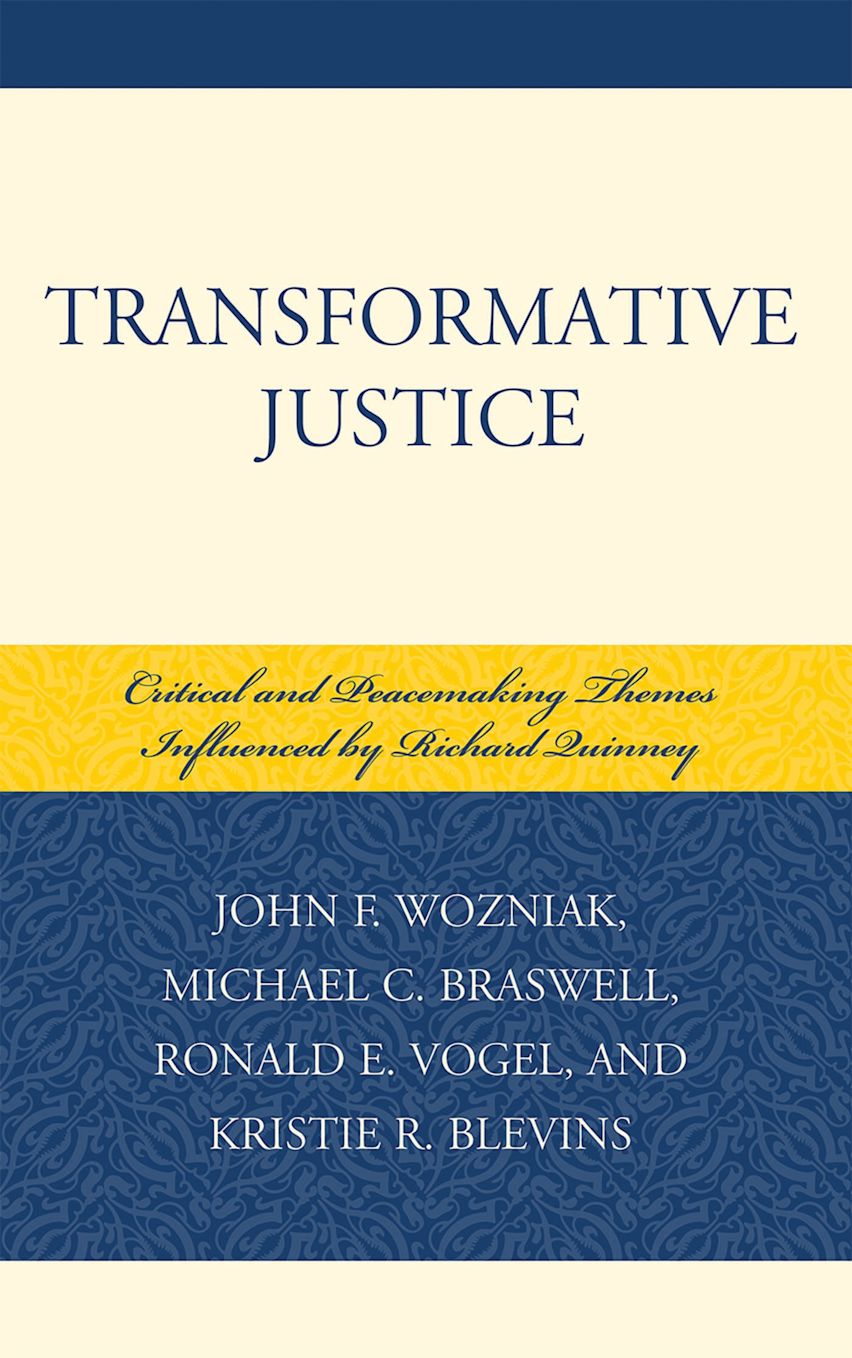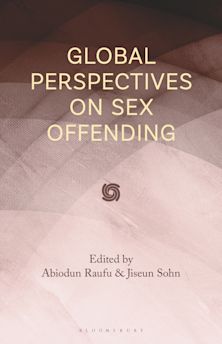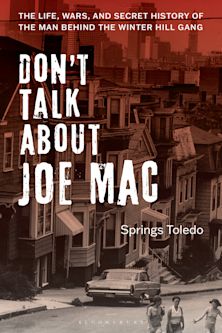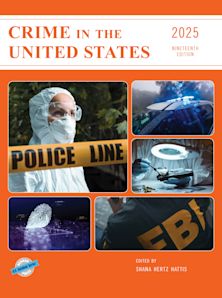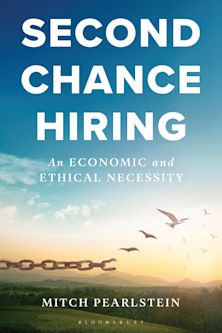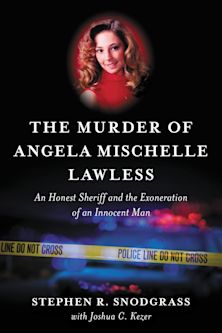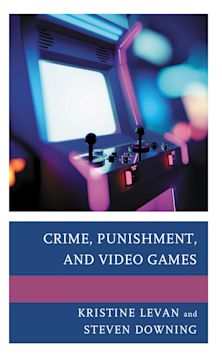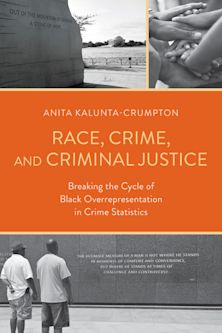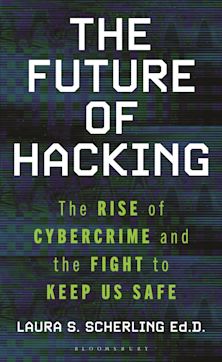- Home
- ACADEMIC
- Criminology
- Criminology - Other
- Transformative Justice
Transformative Justice
Critical and Peacemaking Themes Influenced by Richard Quinney
John F. Wozniak (Anthology Editor) , Michael C. Braswell (Anthology Editor) , Ronald E. Vogel (Anthology Editor) , Kristie R. Blevins (Anthology Editor) , Kevin Anderson (Contributor) , John Randolph Fuller (Contributor) , Wayne Gillespie (Contributor) , Amy Hembree (Contributor) , David Kauzlarich (Contributor) , Ronald C. Kramer (Contributor) , M Joan McDermott (Contributor) , Raymond J. Michalowski (Contributor) , Alan Mobley (Contributor) , Harold "Hal" Pepinsky (Contributor) , Polly F. Radosh (Contributor) , Randall G. Shelden (Contributor) , Chuck Terry (Contributor) , Larry L. Tifft (Contributor) , John T. Whitehead (Contributor)
Transformative Justice
Critical and Peacemaking Themes Influenced by Richard Quinney
John F. Wozniak (Anthology Editor) , Michael C. Braswell (Anthology Editor) , Ronald E. Vogel (Anthology Editor) , Kristie R. Blevins (Anthology Editor) , Kevin Anderson (Contributor) , John Randolph Fuller (Contributor) , Wayne Gillespie (Contributor) , Amy Hembree (Contributor) , David Kauzlarich (Contributor) , Ronald C. Kramer (Contributor) , M Joan McDermott (Contributor) , Raymond J. Michalowski (Contributor) , Alan Mobley (Contributor) , Harold "Hal" Pepinsky (Contributor) , Polly F. Radosh (Contributor) , Randall G. Shelden (Contributor) , Chuck Terry (Contributor) , Larry L. Tifft (Contributor) , John T. Whitehead (Contributor)
This product is usually dispatched within 1 week
- Delivery and returns info
-
Free CA delivery on orders $40 or over
You must sign in to add this item to your wishlist. Please sign in or create an account
Description
The criminological contributions of Richard Quinney have spanned four decades and have spawned and energized both critical and peacemaking intellectual and activist movements in the field of Criminology. Quinney has been consistently recognized as one of a small handful of seminal thinkers in the discipline. The introduction illustrates how each chapter: has drawn inspiration from the crime-related writings of this influential criminologist; contains core assumptions of critical and peacemaking criminology; has application for the development of transformative justice as an alternative approach to the study of crime.
Part 1 features chapters generally falling within the parameters of critical criminology. Here, critical analyses are directed toward: linkages of capitalism and political economy to crime; state/corporate crime; feminist concerns about moral conscience; views of crime and justice among convict criminologists; prison as an industrial complex. Part 2 exhibits chapters oriented toward the development of peacemaking criminology. As such, peacemaking criminology is explored in regard to: an emergent theoretical model; a synthesis of Quinney's peacemaking-oriented writings; women's crime and mothers in prisons; teaching and learning about justice through a non-violent perspective; advocating justice reforms on the internet; its future directions in terms of theory and application.
Table of Contents
Part 2 Part 1. Critical Themes
Chapter 3 Chapter 2. Richard Quinney's Journey: The Marxist Dimension
Chapter 4 Chapter 3. Crime and Peace: A Walk with Richard Quinney
Chapter 5 Chapter 4. The Origins and Development of the Concept and Theory of State-corporate Crime
Chapter 6 Chapter 5. On Moral Enterprises, Pragmatism, and Feminist Criminology
Chapter 7 Chapter 6. Exploring the Paradox of the (Un)reality of Richard Quinney's Criminology
Chapter 8 Chapter 7. It's More Profitable to Treat the Disease than to Prevent It: Why the Prison Industrial Complex Needs Crime
Part 9 Part 2. Peacemaking Themes
Chapter 10 Chapter 8. Toward a Theoretical Model of Peacemaking Criminology: An Essay in Honor of Richard Quinney
Chapter 11 Chapter 9. The Relevance of Richard Quinney's Writings on Peacemaking Criminology: Toward Personal and Social Transformation
Chapter 12 Chapter 10: Reflections on Women's Crime and Mothers in Prison: A Peacemaking Approach
Chapter 13 Chapter 11. In the Beginning was the Student: Teaching Peacemaking and Justice Issues
Chapter 14 Chapter 12. Peacemaking and Crime: Advocating Reform on the Internet
Chapter 15 Chapter 13. The Future of the Peacemaking Perspective
Product details
| Published | Dec 16 2008 |
|---|---|
| Format | Hardback |
| Edition | 1st |
| Extent | 266 |
| ISBN | 9780739109328 |
| Imprint | Lexington Books |
| Dimensions | 241 x 160 mm |
| Publisher | Bloomsbury Publishing |
About the contributors
Reviews
-
Surely few contemporary criminologists have influenced so many others in such profound ways as Richard Quinney. He took a professional and personal path wholly unlike that of any other criminologist, and produced a rich, highly original and often lyricalbody of work. This superb book of essays introduces a new generation of criminology students to the unique and provocative thought of Richard Quinney and demonstrates how he helped shape peacemaking criminology. In an era when over two million Americans are incarcerated, and new repressive and retributive dimensions of criminal justice continue to be introduced, inspiring alternative ways of thinking about crime and justice are needed more than ever. It is difficult to imagine anyone reading this book and not being personally transformed by the experience..
David O. Friedrichs, Distinguished University Fellow and Professor of Sociology/Criminal Justice, University of Scranton (Pennsylvania)
-
Building on the rich legacy of Richard Quinney, Transformative Justice challenges traditional criminological thinking and, in so doing, illuminates fresh, humane approaches for alleviating crime and suffering. Critical yet uplifting, utopian yet practical, and sophisticated yet accessible, this volume is both an indispensable addition to any scholar's library and ideal for classroom use.
Francis T. Cullen, Distinguished Research Professor Emeritus, University of Cincinnati
-
This splendid collection of readings-inspired by Richard Quinney's transformative ideas on crime and criminal justice-is a first-rate testament addressing the one abiding concern about the human spirit that Richard has consistently urged us to personally and collectively confront: How might we live?
A. Javier Treviño, Wheaton College
-
Surely few contemporary criminologists have influenced so many others in such profound ways as Richard Quinney. He took a professional and personal path wholly unlike that of any other criminologist, and produced a rich, highly original and often lyrical body of work. This superb book of essays introduces a new generation of criminology students to the unique and provocative thought of Richard Quinney and demonstrates how he helped shape peacemaking criminology. In an era when over two million Americans are incarcerated, and new repressive and retributive dimensions of criminal justice continue to be introduced, inspiring alternative ways of thinking about crime and justice are needed more than ever. It is difficult to imagine anyone
reading this book and not being personally transformed by the experience.David O. Friedrichs, Distinguished University Fellow and Professor of Sociology/Criminal Justice, University of Scranton (Pennsylvania)











